
Topics
News & Resources
‘Controlled Chaos’: In Soma, New Techniques Produce Stronger Rehearsals
Sara Watanabe, Soma Program Coordinator
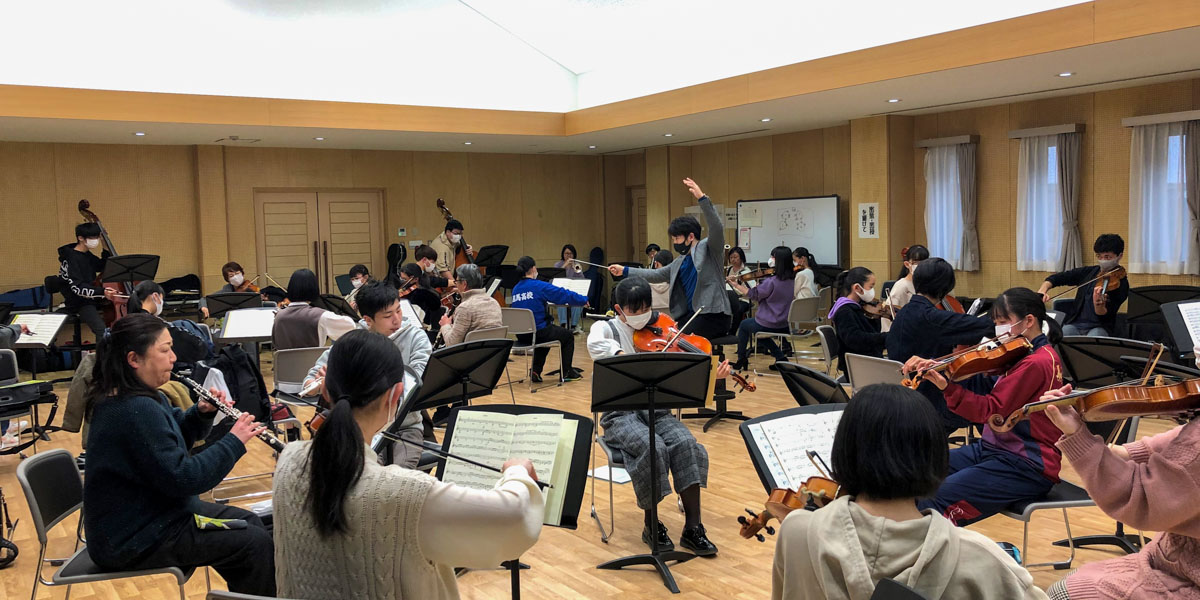
Round practice. Photo: FESJ2020.
At Soma Children’s Orchestra, part of El Sistema Japan, one of our favorite rehearsal techniques is called “round practice,” which aims to improve the orchestra’s ensemble capability and contribute to team building at the same time. The accompanying video of a Beethoven No. 5 rehearsal shows how this is done: our music director, Maestro Yusuke Kimoto, is centered, but members from different sections form four little circles around him. Each circle is comprised of one or two players from each section, so every one of the players has the unusual opportunity to hear the sound of other parts up close, and the sound of their own part in far corners of the room.
Maestro Kimoto had the inspiration for this idea when he saw professional chamber orchestra performing in a unique formation. “The round practice is designed to put the whole orchestra into controlled chaos,” he says. “Unusual musical experiences—such as unusual seating, a sense of playing your part by yourself, and limited access to seeing the conductor—make the orchestra members listen more to each other, and such experiences also surface individual responsibility and leadership. The circle shape of each small group encourages close communication among members from different sections and levels. Eventually, the orchestra starts functioning more autonomously, not relying so much on the conductor.”
When children do this for the first time, they often begin with uncertainty. But they quickly realize that they are hearing the music in a different way. They also come to understand that each of them has an important role to play in taking responsibility and shaping the music.
Our concertmaster, Momoka, looks back on the session with appreciation. “I’ve felt it difficult to have good communication with wind players during regular rehearsals, but when we did round practice, I sat next to a clarinet player/teacher for the first time. His advice from the winds’ perspective about how I, as concertmaster, can lead the orchestra gave me great confidence. I also enjoyed having the mini-ensemble of the circle, in which I could frankly exchange advice with players with whom I rarely speak. The round practice helps us enhance the quality of ensemble and tighten the team bonds that lead to concert success.”
Editor’s Note: Congratulations to El Sistema Japan on recently receiving the Japan Foundation’s 2021 Citizen’s Award for “[helping] children affected by the Great East Japan Earthquake grow stronger through music.” Learn more in this announcement from the Japan Foundation.
Related Content
Collaborations, Community Building, Featured, Gather Together, North America, Perspectives & Collective Action, Student Voice & Leadership
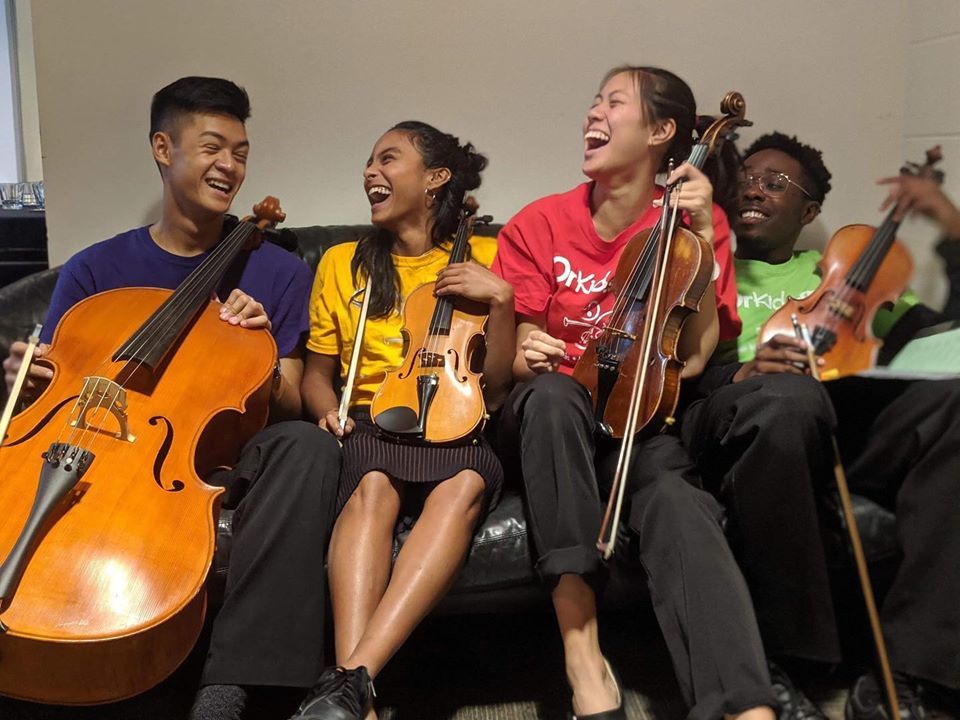
Creating a Community of Belonging at OrKidstra
Michael Gutierrez

Africa, Collaborations, Community Building, Featured, Gather Together, Perspectives & Collective Action, Student Voice & Leadership
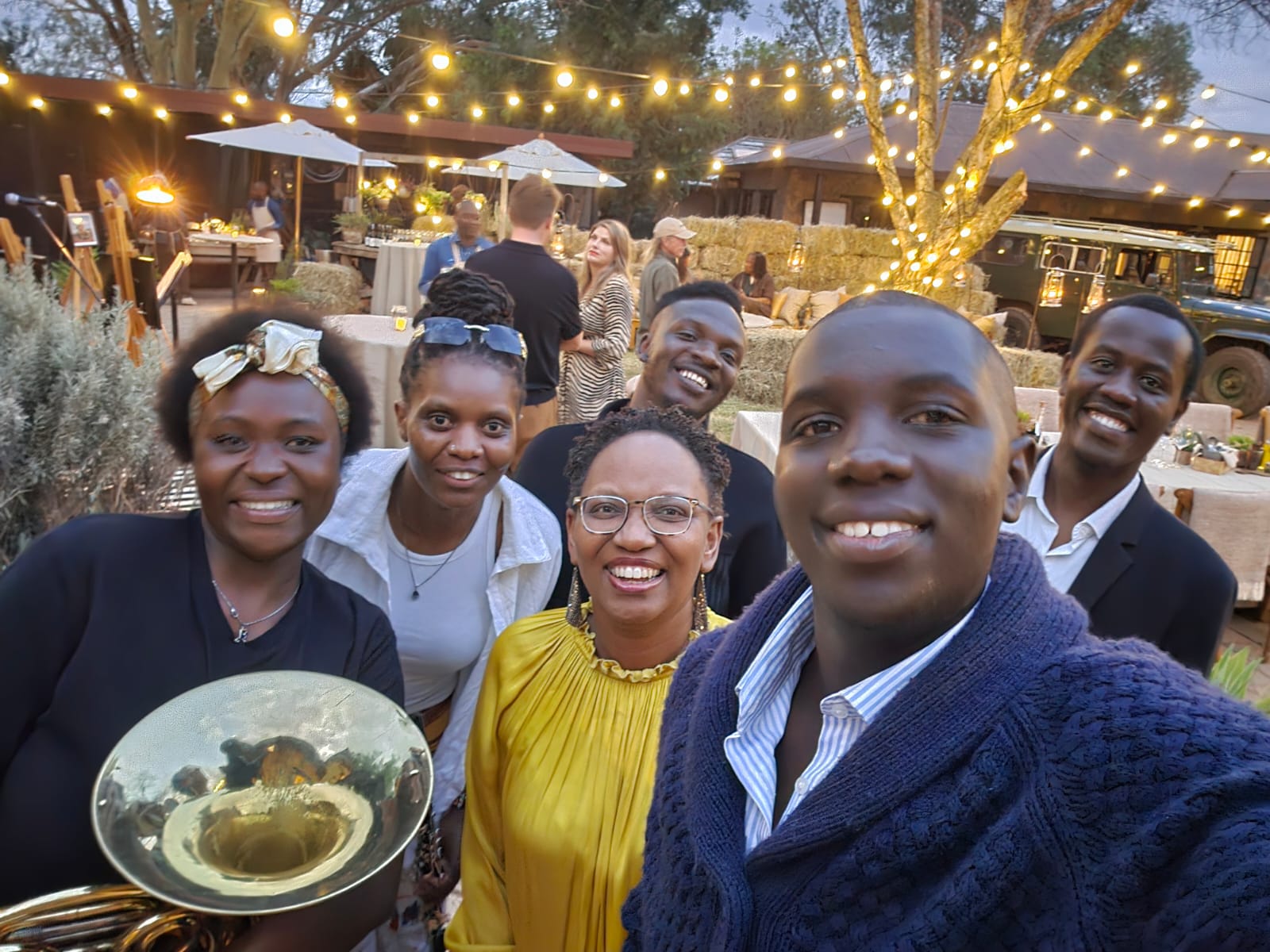
Re-birth: 18 Years of Music, Meaning, and Maturing
Michael Gutierrez

Collaborations, Community Building, Featured, Gather Together, North America, Perspectives & Collective Action, Peru, Professional Development, Strings, Teaching & Learning
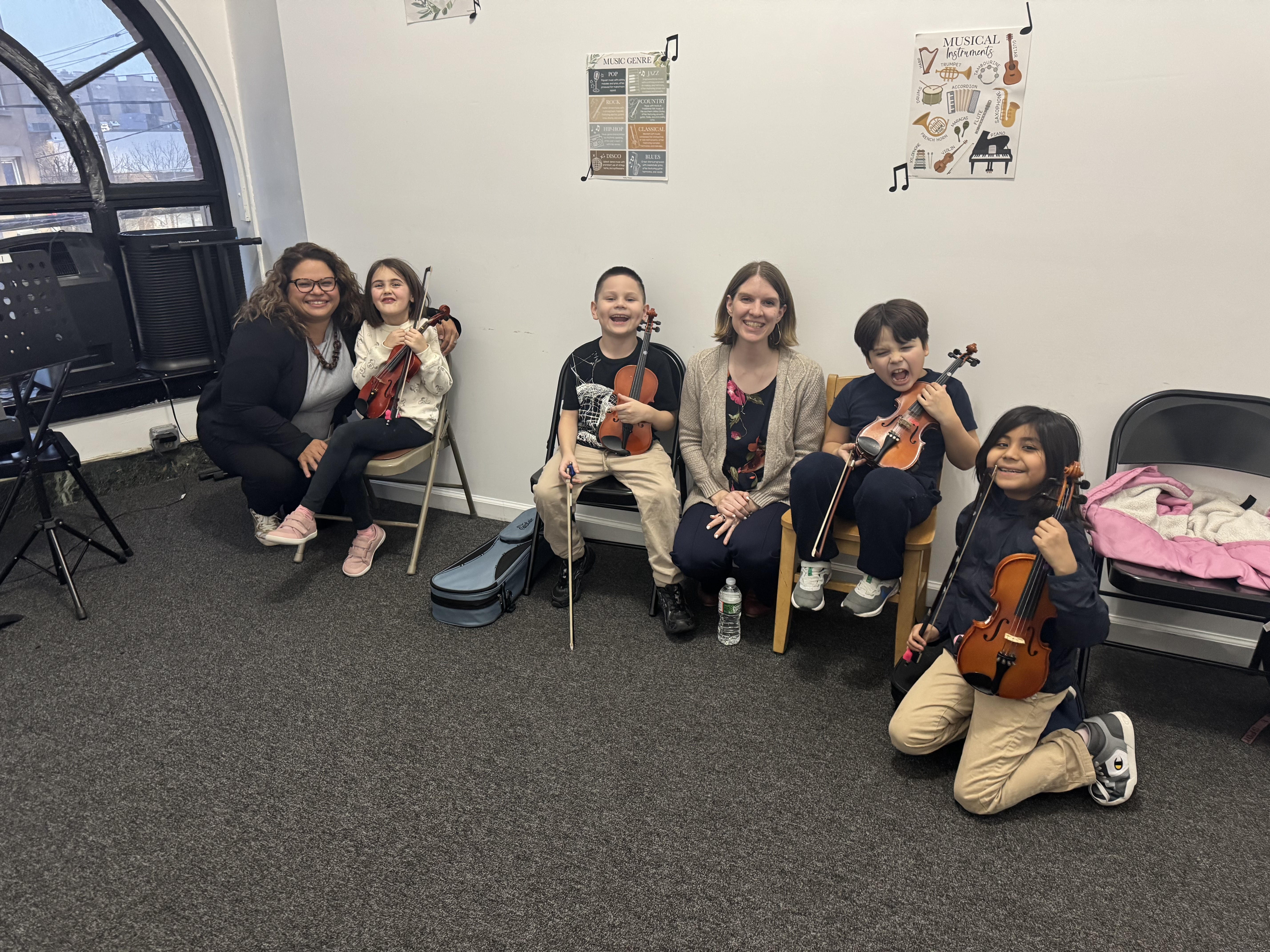
Violin Included: Reflections on Leadership, Giving, and Growing Up in This Field
Patrick Scafidi

Ambassadors, Collaborations, Community Building, Featured, Gather Together, Latin America, Perspectives & Collective Action, Student Voice & Leadership, Teaching & Learning, the world ensemble
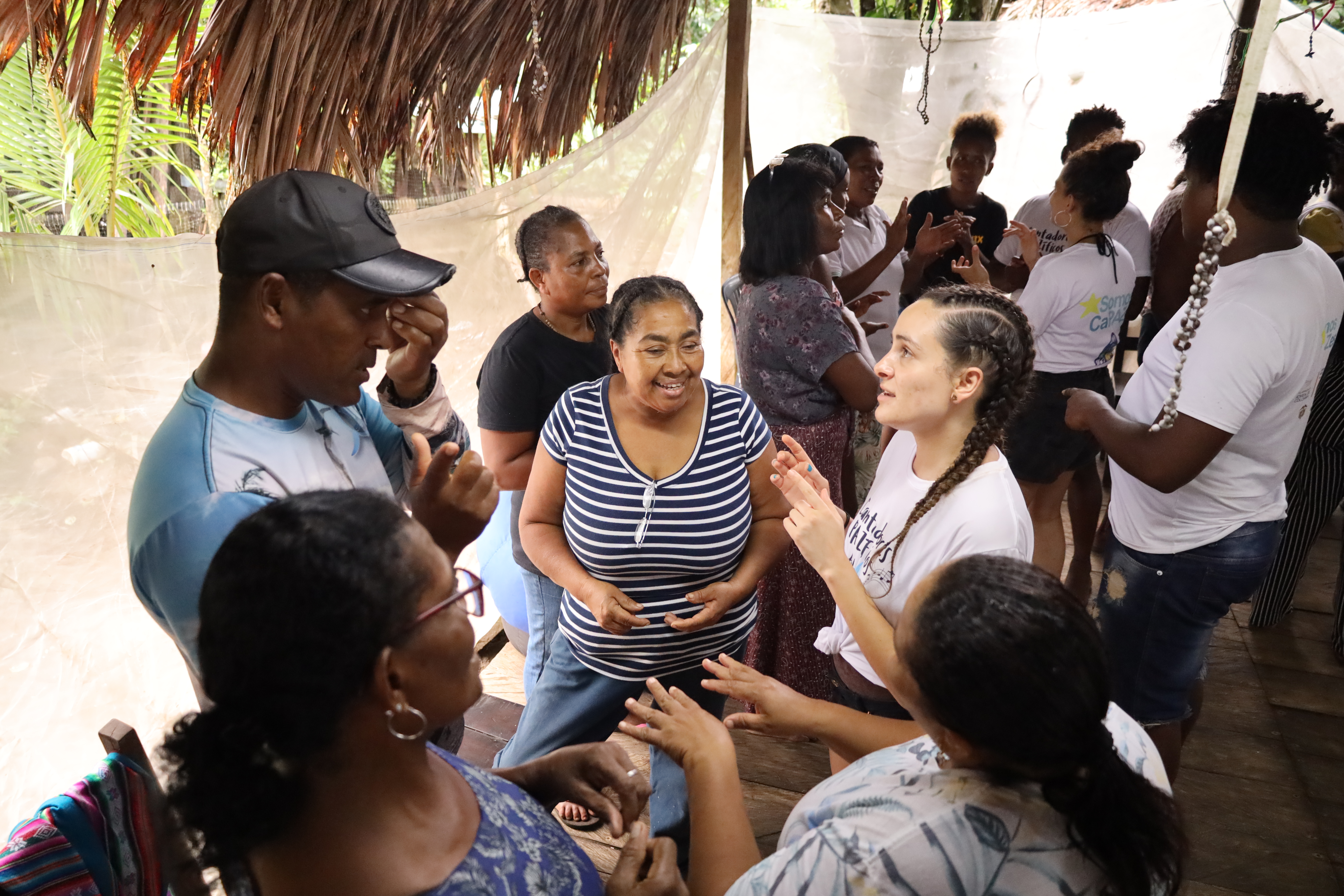
Through Songwriting, Colombian Communities Resolve Conflict and Make Their Voices Heard
Michael Gutierrez


